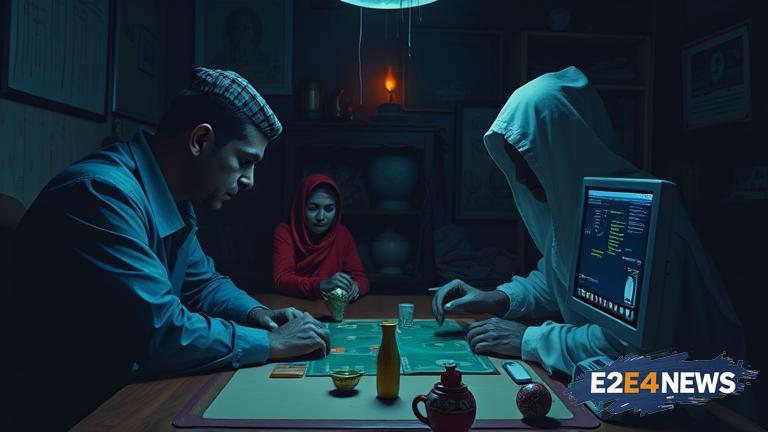The Agra conversion racket probe has taken a dramatic turn with the discovery of links to the dark web, online Ludo, and Pakistan. The investigation, which began with the arrest of several individuals accused of converting people to Islam, has now expanded to include cybercrime and national security agencies. According to sources, the accused used online platforms, including the popular game Ludo, to lure victims into their conversion racket. The dark web, a hidden part of the internet, was also used to facilitate communication and transactions between the accused and their handlers. The probe has revealed that the conversion racket was not just limited to Agra, but had tentacles across the country, with links to Pakistan-based handlers. The accused allegedly used fake social media profiles and online gaming platforms to target vulnerable individuals, including women and minors. Once targeted, the victims were coerced into converting to Islam, with some even being forced to marry their converters. The investigation has also uncovered a complex web of financial transactions, with money being laundered through hawala channels and cryptocurrency. The accused allegedly received funding from Pakistan-based handlers, which was used to finance their conversion activities. The probe has sparked concerns over national security, with agencies warning of the potential for cybercrime and terrorism. The use of online platforms and the dark web has made it difficult for authorities to track the accused, with many using encrypted communication channels and virtual private networks (VPNs) to remain anonymous. The investigation has also highlighted the need for greater awareness and education on online safety and cybersecurity. As the probe continues, authorities are working to identify and apprehend all those involved in the conversion racket, including the masterminds behind the operation. The case has sparked widespread outrage and concern, with many calling for stricter laws and regulations to prevent such incidents in the future. The government has assured that it is taking all necessary steps to prevent the misuse of online platforms and to protect the rights of citizens. The Agra conversion racket case has also raised questions about the role of social media companies and online gaming platforms in preventing such incidents. While the investigation is ongoing, one thing is clear: the case has exposed the dark underbelly of the internet and the need for greater vigilance and cooperation between authorities and online platforms. The use of technology to facilitate crime is a growing concern, and it is imperative that authorities and online platforms work together to prevent such incidents. The Agra conversion racket case is a wake-up call for all stakeholders, including the government, online platforms, and citizens, to be more aware and vigilant about online safety and cybersecurity. As the investigation continues, it is likely that more shocking details will emerge, highlighting the need for a comprehensive approach to tackle cybercrime and national security threats. The case has also sparked a debate about the need for stricter regulations and laws to prevent the misuse of online platforms. While some argue that stricter regulations could infringe on individual freedoms, others believe that it is necessary to prevent such incidents. The government has assured that it is committed to finding a balance between individual freedoms and national security concerns. The Agra conversion racket case is a complex and multifaceted issue, requiring a comprehensive approach to tackle the root causes of the problem. As the investigation continues, it is likely that more details will emerge, highlighting the need for greater cooperation and awareness about online safety and cybersecurity.
